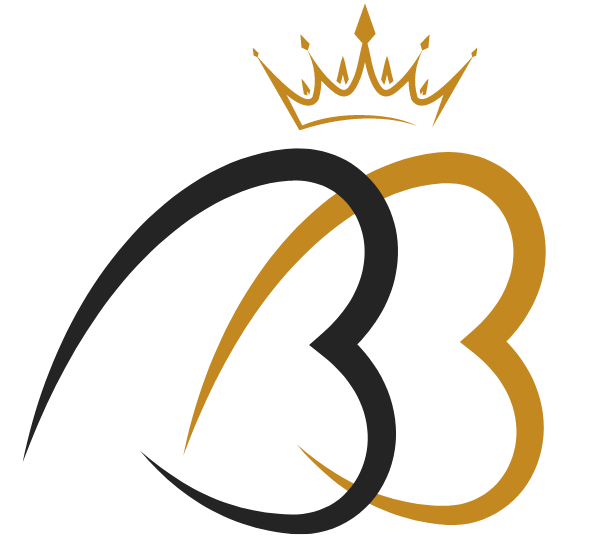Hair bleach, a popular chemical used to lighten hair color, often comes with questions regarding its shelf life. Unopened hair bleach can last between 1 to 3 years from the date it was made.
Manufacturers may suggest that unopened hair dye remains effective for up to three years – but what if there's no expiry date? Then, the rule of thumb is not to keep it longer than three years in any case.
Before considering lightening your locks, always check an essential detail – the expiration date on your hair bleach package. The effectiveness of hair bleach takes a nosedive once mixed; understanding this post-mixing point of no return is critical.
Proper storage plays into how long your bleaching products will stay potent and safe: stored incorrectly, you’ll be waving goodbye to peak performance sooner rather than later.
Powder versus liquid forms adds another layer of consideration, specifically when it comes to peroxide use and ensuring moisturized strands post-treatment.
To keep every strand healthy and vibrant while avoiding harm to your scalp means using these products swiftly after opening within their designated lifespans. It’s all about protecting those tresses! Keep reading—there's plenty more you'll want to know.
- Unopened hair bleach powder can last 1-3 years, but once opened, it should be used within 20 days for the best effect.
- Using expired hair bleach can cause uneven coloring, brittle strands, and scalp irritation or infections. It's essential to check expiration dates before use.
- Proper storage of hair bleach includes keeping it in a cool, dry place away from sunlight and tightly sealed to maintain potency.
- Liquid hair bleach is gentler but less potent than powder; peroxide in the product can strip natural oils, leading to dryness if overused.
- Maintaining hydration in bleached hair involves using nourishing shampoos and conditioners and minimizing heat styling.
Does Hair Bleach Expire?
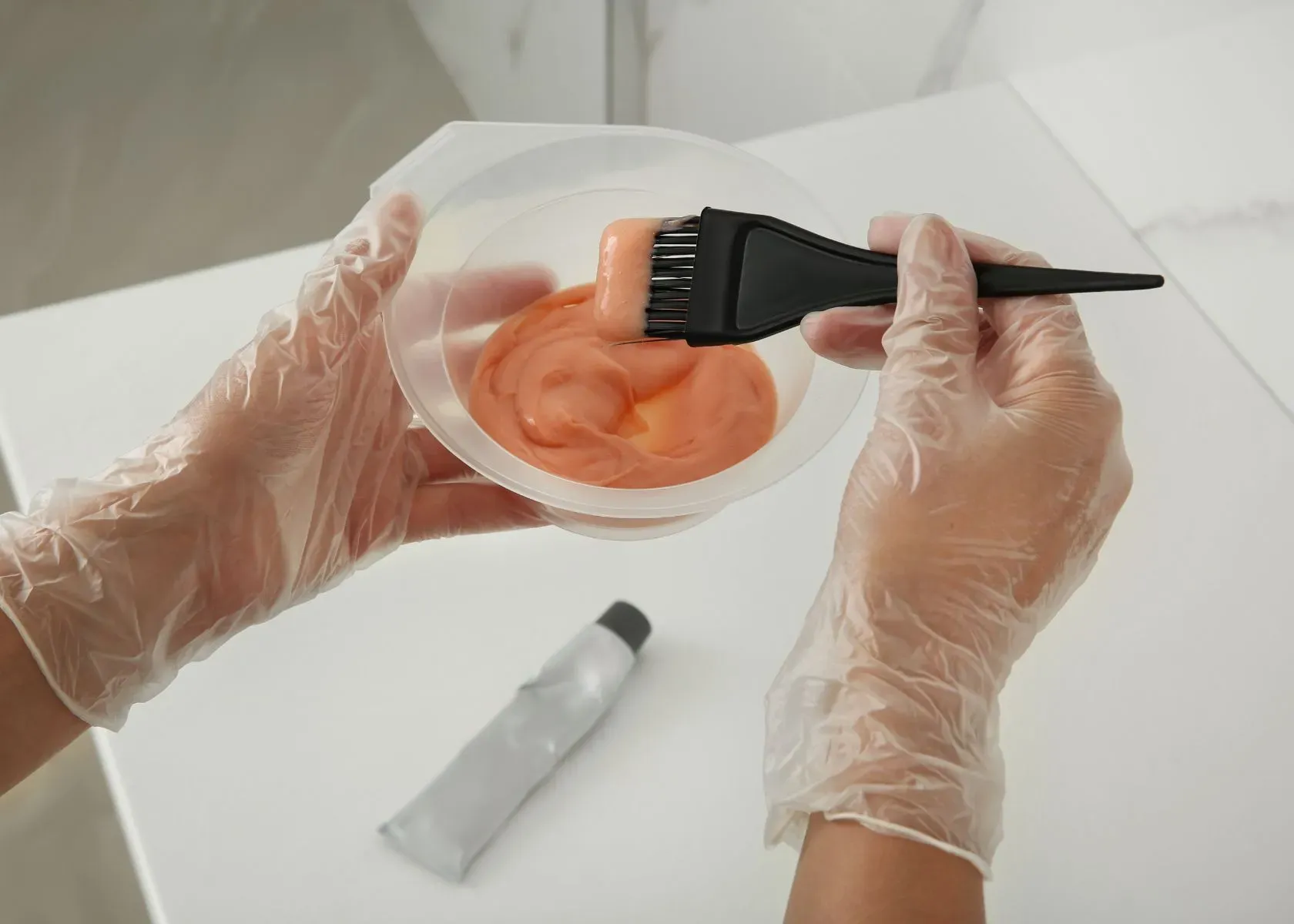
Hair bleach powder and mixture both have expiration dates, as well as shelf lives for unopened products. It is important to be aware of these dates to ensure the effectiveness and safety of the product when using it on your hair.
Expiration Date of Hair Bleach Powder
Check the packaging of your hair bleach powder for an expiration date before use; this is crucial to maintaining hair health. Most unopened powders last between one and three years, but once you break that seal, the clock starts ticking faster.
The powdered form is more stable than a mixed solution, yet it still loses its effectiveness after opening.
You don't want fragile or damaged strands from using a product past its prime. To be safe, always mark the date when you open your bleach powder and aim to use it within 20 days for optimal results.
Keeping track of this ensures you're getting maximum bleaching power without risking harm to your locks or scalp.
Shelf Life of Unopened Hair Bleach Powder
Unopened hair bleach powder typically maintains its effectiveness for 1-3 years from the production date, as per manufacturers. The shelf life may vary depending on the specific formulation and type of bleach powder, but it is generally advised to adhere to the expiration date specified on the packaging.
If unopened hair dye lacks an expiration date, it's best to assume a maximum duration of 3 years before potential degradation occurs.
Hair bleach powder that has passed its expiration date or been stored improperly can lead to undesirable consequences such as uneven coloring, dry and brittle texture in hair strands, increased shedding, and discomfort on the scalp.
Expiration Date of Hair Bleach Mixture
It is crucial to be mindful of the expiration date of hair bleach mixture, as its shelf life can vary depending on the type and formulation. Once a hair bleach mixture is prepared, it typically has a shorter lifespan compared to unopened bleach powder.
Using an expired hair bleach mixture can result in uneven hair color, dry and brittle hair, increased shedding, and potential scalp infections. Hence, always check the expiration date before using a prepared mixture to ensure optimal results and prevent damage to your hair.
Being aware of the expiration date of your hair bleach mixture is essential for maintaining healthy and vibrant-looking hair. Ideally, use the prepared mixture within an appropriate timeframe suggested by the manufacturer or discard it if it is past its expiration date.
The Risks of Using Expired Hair Bleach
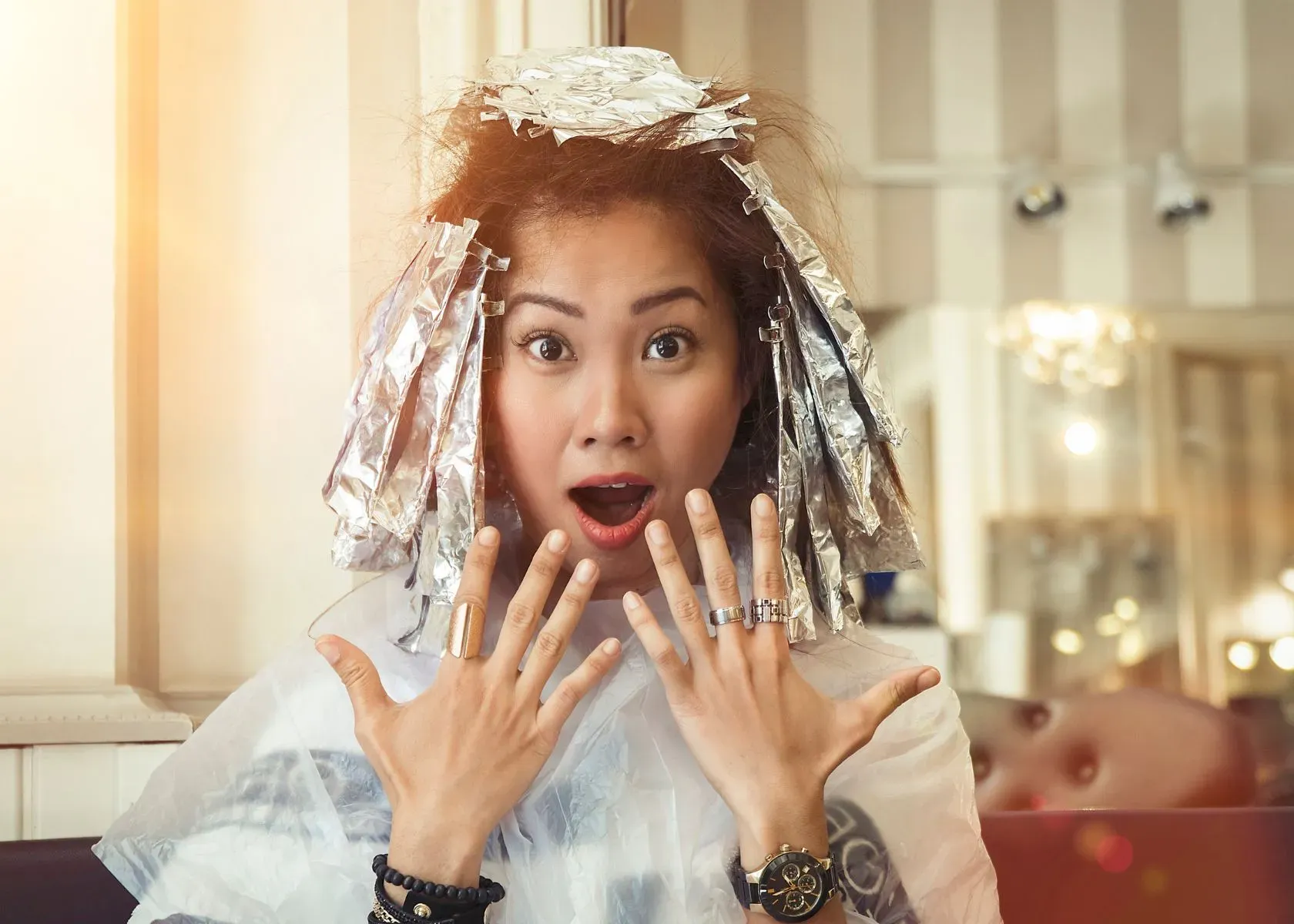
Using expired bleach can lead to consequences such as ineffective color results, hair damage, and potential health risks from using an expired developer. It's important to be aware of the risks and avoid using expired products on your hair.
Consequences of Using Expired Developer
Using an expired developer in hair bleach can result in ineffective hair lightening and potential damage to your hair. The chemical composition of the expired developer may have changed, leading to unreliable results.
This could cause uneven or brassy hair color, as well as dry, brittle, and fragile strands due to the inability of the expired developer to properly open the cuticle for effective lightening.
Expired developers can also contribute to scalp irritation and discomfort. In some cases, using an expired developer may lead to scalp infections due to its unstable nature after expiration.
Additionally, increased shedding or breakage of hair is a possible consequence of using an expired developer in your bleaching mixture. Therefore, it's crucial to check the expiration date before using any hair bleach products containing developers.
When mixing an outdated developer with other chemicals, such as bleach powder or dye, it is essential to be aware that its instability can compromise the overall effectiveness of the product.
Potential Health Risks of Using Expired Hair Dye
Expired hair products, including hair dye, can pose potential health risks to individuals. Using hair dye that has passed its expiration date may lead to adverse effects on the scalp and hair. These include scalp infections, irritation, allergic reactions, and discomfort due to the chemical breakdown of the expired dye.
Moreover, expired hair dye may result in suboptimal coloring outcomes, such as uneven or brassy hues.
Additionally, using expired hair dye could cause increased breakage and dryness of the hair strands, leading to brittle and fragile hair texture. It's important to be mindful of these potential health risks associated with using expired hair dye and prioritize safety when choosing products for your hair care routine.
Proper Storage and Handling of Hair Bleach
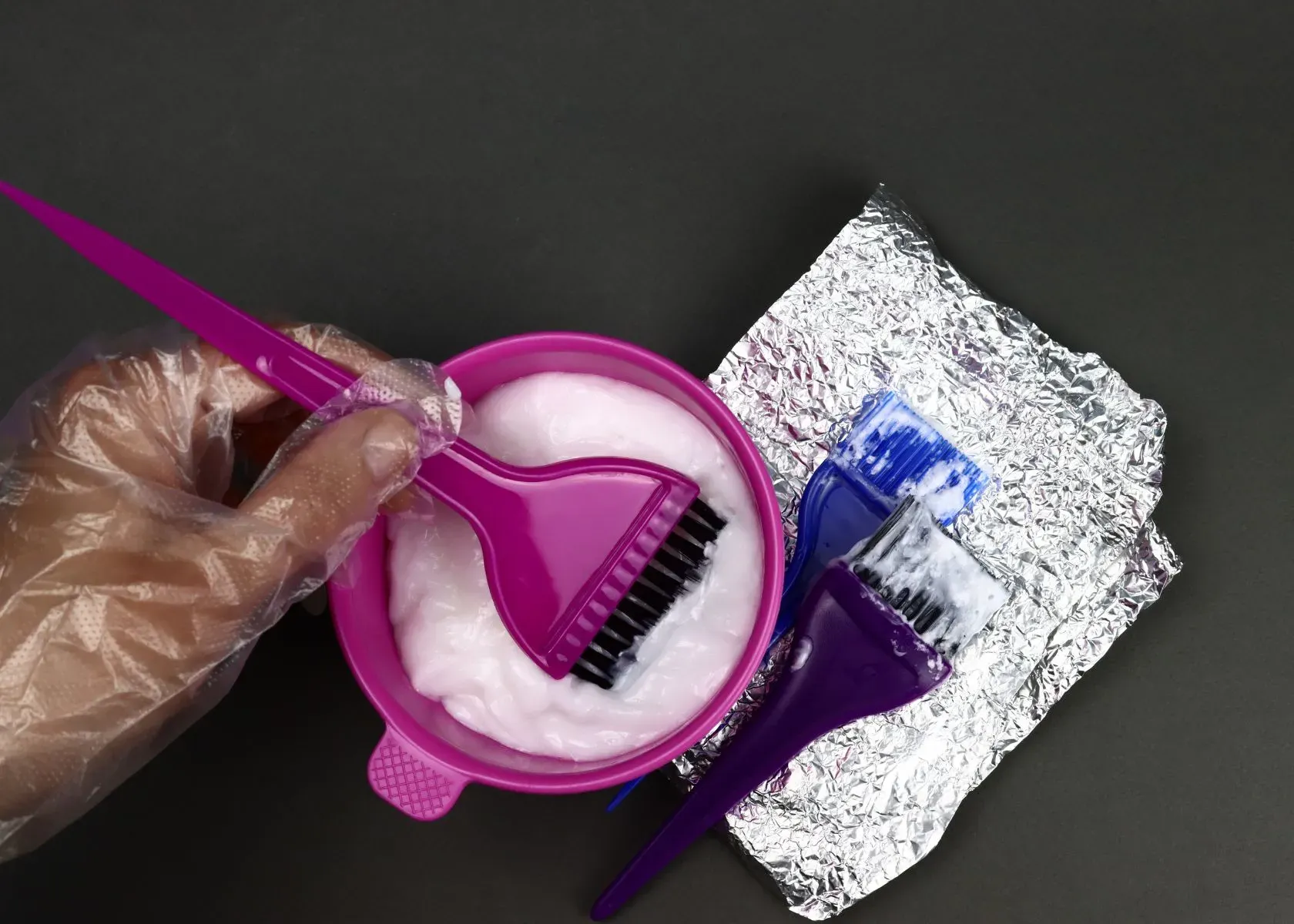
Proper storage and handling of hair bleach is crucial to maintain its effectiveness. Learn how to store hair bleach and how to tell if your hair bleach has expired.
How to Store Hair Bleach?
The shelf life of hair bleach depends on how you store it. To store hair bleach properly, follow these guidelines:
- Keep unopened hair bleach powder in a cool, dry place away from direct sunlight and moisture to maintain its effectiveness.
- The store opened hair bleach powder in an airtight container to prolong its shelf life and prevent exposure to air and humidity.
- Ensure that the cap or lid of the hair bleach mixture is tightly closed to avoid oxidation and maintain its potency.
- Store mixed hair bleach in a cool, dark place to prevent degradation and maintain its effectiveness for future use.
- Check the expiration date on the packaging regularly to ensure that you are using fresh and effective hair bleach products.
- Keep hair bleach out of reach of children and pets to prevent any accidental ingestion or contact with the skin.
- Avoid storing hair bleach near heat sources or in high temperatures, as this can accelerate its expiration process and reduce effectiveness.
How to Tell If Your Hair Bleach Has Expired?
To determine if your hair bleach has expired, follow these steps:
- Check the expiration date on the packaging before using the hair bleach to ensure it is within its shelf life.
- Inspect the consistency of the hair bleach. Expired hair bleach may have a changed texture, such as lumps or clumps, indicating deterioration.
- Look for any unusual color changes in the hair bleach, as this can be a sign of expiration or ineffectiveness.
- Pay attention to any pungent or foul odors emanating from the hair bleach, which may indicate spoilage and expiration.
- Perform a patch test on a small section of hair to observe any adverse reactions that could indicate expired or ineffective hair bleach.
- Evaluate the performance of the hair bleach during application; if it doesn't produce the expected results, it may have expired or lost its effectiveness.
- Consider any changes in your hair's condition after bleaching, such as increased dryness or damage, which may indicate the use of expired hair bleach.
The Difference Between Powder and Liquid Hair Bleach
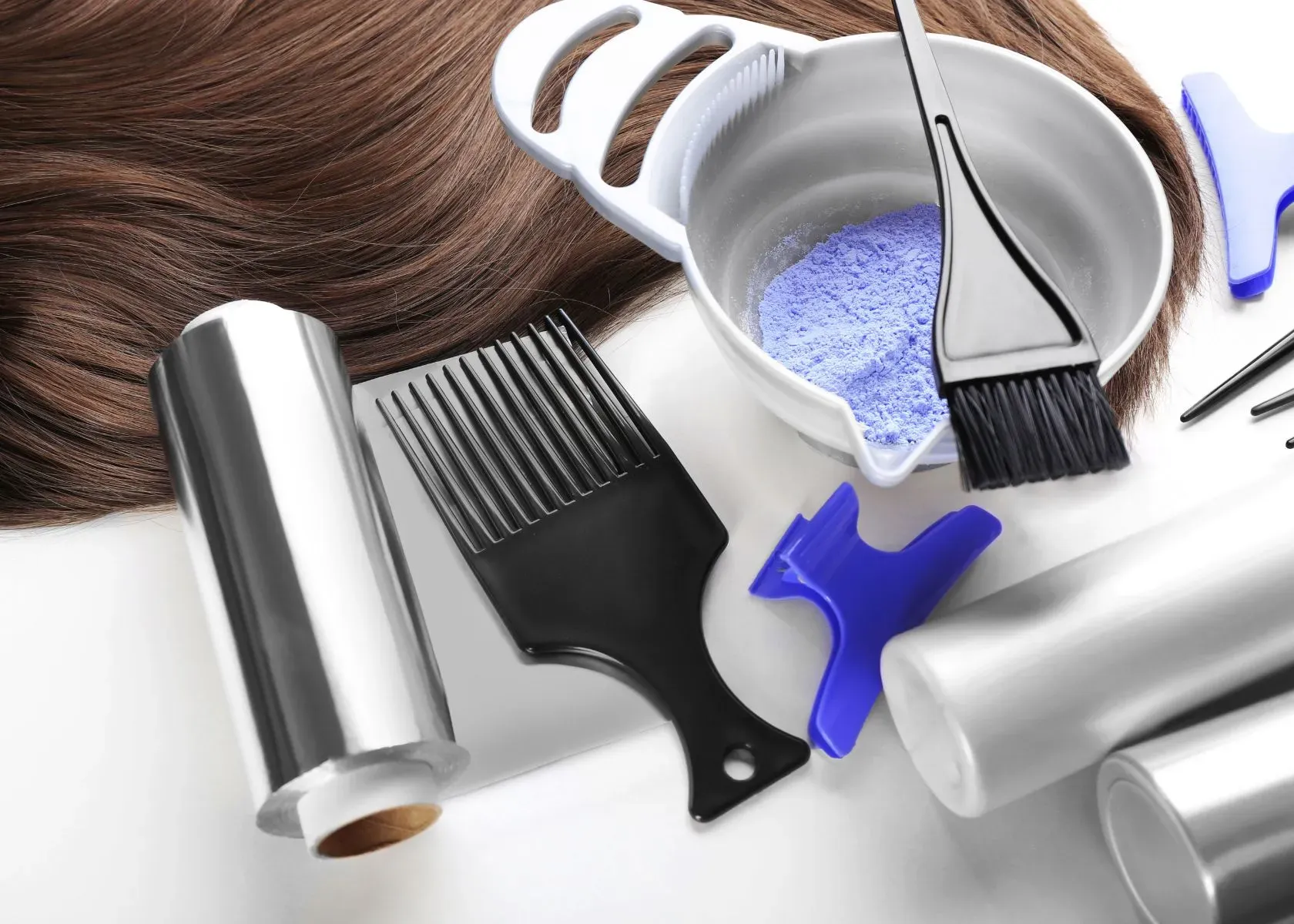
Powder hair bleach is generally more potent and can lift the hair color more effectively, but it can also be more drying. Liquid bleach, on the other hand, may be easier to apply and is often gentler on the hair, but it may not be as powerful as powder bleach.
Pros and Cons of Using Peroxide
Peroxide is an effective hair-lightening agent commonly found in bleach powder. One benefit of using peroxide is its ability to open up the hair cuticle, allowing for better color penetration.
Additionally, peroxide can lift hair color several shades lighter, making it a popular choice for dramatic hair transformations.
On the downside, excessive use of peroxide can lead to dry and damaged hair due to its stripping effect on natural oils. Over-bleaching with peroxide may also cause scalp irritation and sensitivity, leading to discomfort and potential scalp infections.
Maintaining Hydration in Bleached Hair
After considering the pros and cons of using peroxide for bleaching your natural hair, it's crucial to focus on maintaining hydration in your hair post-bleaching. Bleached hair tends to become dry and brittle due to the removal of natural oils during the bleaching process.
To combat this, use a hydrating shampoo and conditioner specifically formulated for color-treated or bleached hair. Look for products containing ingredients like argan oil, coconut oil, or shea butter to help nourish and moisturize your locks.
In addition to using hydrating hair care products, consider incorporating a deep conditioning treatment into your routine at least once a week. This can help replenish lost moisture and improve the overall health and appearance of your bleached hair.
FAQs
In the following FAQs, we'll cover the nuances of hair bleach expiration dates, what signs to look for when bleach has gone bad, how to store bleach properly to maximize its shelf life, and tips to avoid damaging your hair or scalp if you work with expired bleach. Read on for a primer that will guarantee you end up with the lovely locks you're aiming for.
Can hair bleach go bad after a while?
Yes, hair bleach can expire, and its effectiveness may decrease over time due to factors like how it's stored.
How long does hair bleach last before it isn't good anymore?
Hair bleach powder has a shelf life of about two years, but always check the expiration date to be sure.
Will using expired hair bleach ruin my hair?
Using expired hair bleach might not give you the desired results and can potentially lead to uneven color or damaged hair.
Do I need to throw out my mixed hair bleach if I don't use it all right away?
Once mixed with the hair developer (containing hydrogen peroxide), any leftover hair bleach mixture should be discarded as its effectiveness quickly diminishes within a short period.
Are there tips for keeping my hair bleach good until I use it?
To maintain your hair treatment's quality, store unopened hair bleach in cool, dry places and tightly seal opened products to extend their shelf life.
Conclusion
Understanding the expiration and shelf life of hair bleach is essential for maintaining healthy hair. By following proper storage guidelines and checking expiration dates, you can ensure the effectiveness of your hair-bleaching products.
This practical approach not only safeguards against potential damage but also promotes efficient usage. Emphasize the importance of using fresh products to prevent negative effects on your hair and scalp.
Take action now by inspecting your hair bleach products and implementing these simple yet impactful tips for healthier, long-lasting results. If you have any questions, feel free to reach out to use in the comments below.
References
- Imai, T. (2011). The influence of hair bleach on the ultrastructure of human hair with special reference to hair damage. Okajimas folia anatomica Japonica, 88(1), 1-9.
- Lee, G. Y., & Chang, B. S. (2008). Study on the tensile strength of bleached hair. Applied Microscopy, 38(3), 251-257.
Read More About Bleaching Hair


